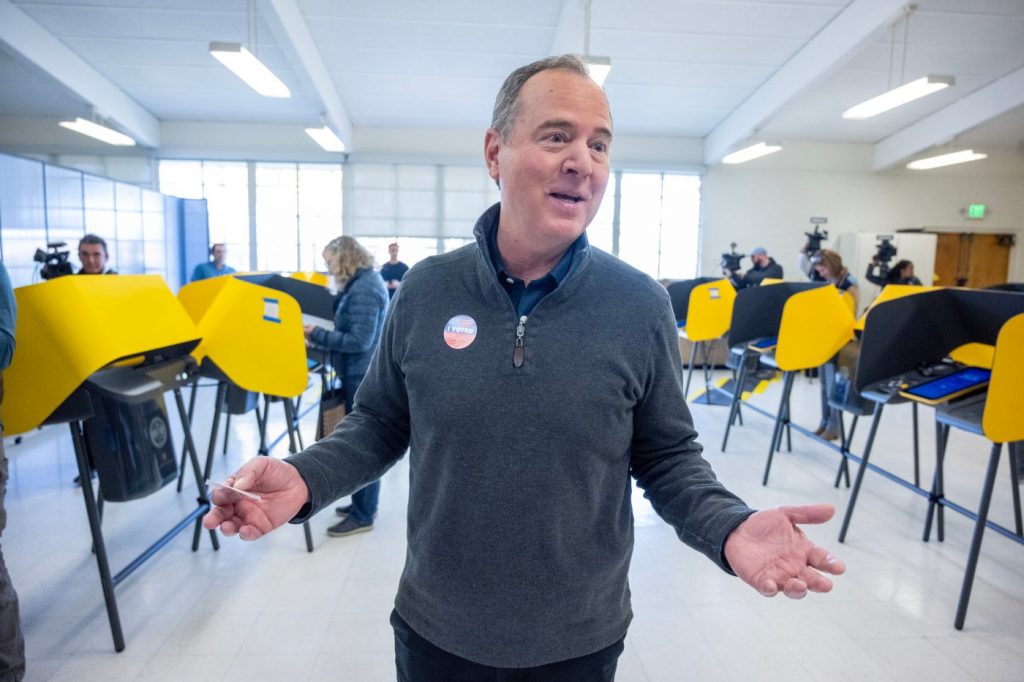In the 173 years since California became a state, 43 men and four women have occupied its two U.S. Senate seats, and a few achieved prominent places in political history.
Explorer and soldier John Fremont, one of the state’s first two senators, is one of the few historic notables, as are newspaper publisher George Hearst, railroad baron Leland Stanford, political reformer Hiram Johnson and newspaper publisher William Knowland.
Just one California senator, Richard Nixon, made it to the presidency only to resign in disgrace, while Dianne Feinstein became the state’s first woman to represent the state in 1992 and served for a record 31 years before her death last year.
A curious tendency of California’s senators emerged in the 1960s. At any given moment, one of the two current senators would, for various reasons, generate a lot of notoriety in news media while the other would be the worker bee, quietly representing the state’s interests and working on serious national issues.
The gap in personal proclivities of those occupying Senate seats was very obvious during the many years when Feinstein, an uber-serious lawmaker, and Barbara Boxer, who fancied herself a political warrior, were California’s two senators.
One senator, Democrat Alan Cranston, played both roles during his 24 years in the Senate, from 1969 to 1993. At first he was a policy wonk while the other seat was held by two short-termers, John Tunney and S.I. Hayakawa. In the 1980s, however, Cranston became enmeshed in a messy savings and loan scandal and made a very unsuccessful run for the White House while Republican Pete Wilson quietly represented the state.
When Feinstein died, Gov. Gavin Newsom appointed Laphonza Butler to serve as a brief replacement, having earlier named Alex Padilla, California’s former secretary of state, after Kamala Harris gave up her Senate seat to become vice president.
Tuesday’s primary election pretty much guaranteed that Adam Schiff, a Democratic congressman from Los Angeles, will occupy what had been Feinstein’s Senate seat. He and Republican Steve Garvey, a former baseball star, were the two top finishers in a field of 27 candidates, each garnering about a third of the votes. They will face each other in November.
The other two potentially viable Democratic candidates, Orange County Congresswoman Katie Porter and Oakland Congresswoman Barbara Lee, were distant finishers behind Schiff and Garvey.
The outcome was exactly what Schiff had hoped it would be when he spent heavily on reverse psychology advertising to boost Garvey’s standing among Republican voters by portraying him as a dangerous Republican.
Related Articles
Adam Schiff and Steve Garvey headed for a two-party November runoff for California’s U.S. Senate seat
Bay Area voters already dreading Trump-Biden rematch: ‘Can’t we all just be friends?’
Winners and losers from Super Tuesday
Election Day: Five things to watch for in California
Silicon Valley’s new AI generates election-meddling worries
Porter-backer Adam Green was bitter about Schiff’s ploy, telling Politico, “Adam Schiff put his own selfishness above democracy by lifting up Republican Steve Garvey, who will now turn out Trump voters in key House races that could determine control of Congress.”
Had Porter finished second instead of third, as seemed possible months earlier before Garvey entered the race, she would have presented a serious challenge to Schiff from his left flank, given her image as a progressive reformer. But now, with the Democrats enjoying a massive advantage in voter registration vis-à-vis Republicans, Schiff should be able to easily coast to a win in November.
When Schiff, as expected, joins Padilla in the Senate, it means a return to California having two male senators after more than three decades with at least one female senator. It may also end the trend of having one flashy senator and one diligent worker since neither Padilla nor Schiff has a magnetic personality or burning causes to pursue. Both are political journeymen who have patiently climbed the political ladder rung-by-rung.
Dan Walters is a CalMatters columnist.


